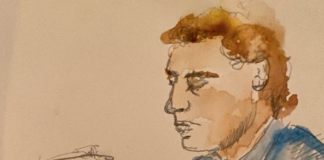- Dark speak easy part one - 18th February 2026
- X marks the spot again - 17th February 2026
- Wordy again part three - 16th February 2026

During a 40 year career as a journalist, for our Editor Phil Parry, interest in policy within politics was crucial, so he is intrigued by renewed criticism as well as support for Labour’s scheme to hit private schools with VAT, and as he went to one, his views are more important than most.
It seems that many may close.
Private schools forced to shut their doors because of the imposition of Value Added Tax (VAT), may then have to join, or re-join, the state sector.

This could even come in a few months time.
As The Sun has put it: “LABOUR could slap VAT on school fees as soon as September, the shadow Education Secretary has said.
“Despite fears of overwhelming the state sector with students if their parents can no longer afford private fees, Bridget Phillipson insisted schools have had long enough to prepare for the hike”.

The Private Education Policy Forum (PEPF) has advised Labour on its controversial strategy – with “routes to conversion” for private schools to become part of the state sector, particularly those which struggle with the tax increase on fees.
It has become obvious that education policy (which is devolved in Wales where Labour are in charge), is a critical battleground for politicians at the General Election (GE) – particularly private (confusingly also called ‘public’) schools.

For decades, on and off, the Labour Party have been promising to take a harder line on private, fee-paying (or more accurately fee-CHARGING) schools.
At one stage they planned to strip private schools of their ‘charitable status’ which has always been anomalous, and the VAT policy has replaced it.
The winning argument against the scrapping of ‘charitable status’ was that it would drive up fees.


My answer to that has always been: “So what?!” (as someone who went to a private school myself [Monmouth] I lay claim to having an opinion on this).
The VAT policy was spelled out to enthusiastic applause at Labour’s conference.
It will make schools liable for tax at the standard rate of 20 per cent, and to remove a discount these schools receive on business rates.
It is claimed the plan will raise £1.6 billion, and forms part of a plan for an extra 6,500 specialist teachers at state schools in England.

Apart from in Labour circles, this policy also appears to be finding support in Conservative ones too.
Writing in The Times in 2017, the former Secretary of State (SoS) for Education, Michael Gove said: “Private school fees are VAT-exempt. That tax advantage allows the wealthiest in this country – indeed, the very wealthiest in the globe – to buy a prestige service that secures their children a permanent positional edge in society at an effective 20 per cent discount. How can this be justified?”.

Mr Gove has now rowed back on this attitude a little (it is after all election time!).
I find this whole debate fascinating.
I attended Monmouth School (a second division private school and certainly not in the league of Eton or Marlborough), between 1973 and 1980 on a ‘direct grant’, and the education was excellent, if extremely traditional.
I declare an interest here, because my dad, Robert Parry, was a teacher at the school.
There were, however, lots of controversies.
Sexual abuse was likely to have happened in this boarding school (although I wasn’t a border).

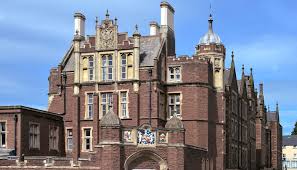
I never suffered any direct sexual abuse myself, although I clearly remember being instructed (with others) to take down my shorts by the (now dead) rugby master, so that he could check whether I was wearing a jock strap or trunks and not underpants before a game.
Even at 11 I thought this was a bit odd…
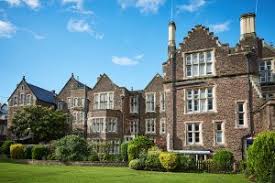
Beatings, though, were commonplace, and one former pupil contacted me to say: “I have come to understand that Monmouth School’s particular contribution… was a degree of brutality, expressed through a considerable number of its teachers… it has also left extremely deep psychological scars in my life, the result of intense trauma…there are many who have suffered in silence over decades of their subsequent lives. Not only from Monmouth, but certainly from there too. And yet the school, and society in general, continues to turn a blind eye to the results of brutalising young lives. It is a tragedy”.

My best mate in school only told me a few years ago of how he was caned by the Headmaster for riding his bike in the wrong place.
He was in his 50s.
He found the experience painful, and so deeply humiliating he did not tell me at the time nor for years afterwards, yet I have seen him countless times since we both left Monmouth School.
It hasn’t just been Monmouth School either, and this might endorse the argument for scrapping VAT-exemption.
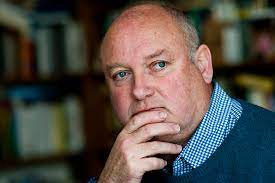
The author Louis de Bernières boarded at Grenham House prep school in Kent between the ages of eight and 13. The school has since closed.
After he spoke out about his awful experiences there, one reader said of his own private school: “Punishment was varied, with most of it being corporal or having to run a certain distance in a certain time. One boy was expelled for punching his housemaster after his housemaster had beaten him. I have always admired the boy for doing that”.
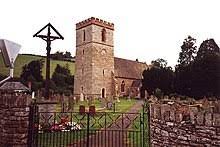
Another ‘victim’ of the private school system, from Clyro in Powys wrote: “I lost my confidence and was terrified of public speaking for many years. At the age of 15 I started to rebel but this horrible school left me with very little in the way of education and very little desire to learn. Only years later did I do a degree — aged 66”.
A further comment, which chimes with my own experience as a day boy, was: “The headmaster was a terrifying sadist. He waged a continuous war against the non-boarders, whom he referred to as ‘day-school horrors’. This was partly because many of them came to school by bus, which he reviled as being common. Any day-boy seen getting on or off a bus was beaten”.
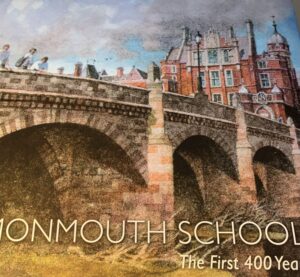
A different remark also sheds light on the terrible ordeal at this kind of school: “Between the ages of 10 and 12, I received 32 beatings for being naughty. You would wait for up to one week, where you and everybody knew that on the Friday evening, while you and all the boys were in bed, and just before lights out, the housemaster would come to the dormitory door and call your name. You would follow him into his study, where he would tell you that you had been naughty and tell you to bend over, then only wearing your pyjamas you would be beaten on your bottom with a gym shoe”.

I now have to undertake regular ‘therapy sessions’ over a cup of coffee with a friend across the road who went to Monmouth School in the 60s, and hates it more than I do, where we talk about what happened. He is the only one who understands!
“We can’t tell our wives about this, they simply wouldn’t understand”, he has said.
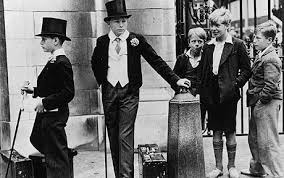
Maybe these sessions won’t be so relevant in future – if Labour get their way!
The memories of Phil’s remarkable decades-long award-winning career in journalism (after his years at Monmouth School) as he was gripped by the rare disabling neurological condition Hereditary Spastic Paraplegia (HSP), have been released in a major book ‘A GOOD STORY’. Order the book now!

Regrettably publication of another book, however, was refused, because it was to have included names of living people.









